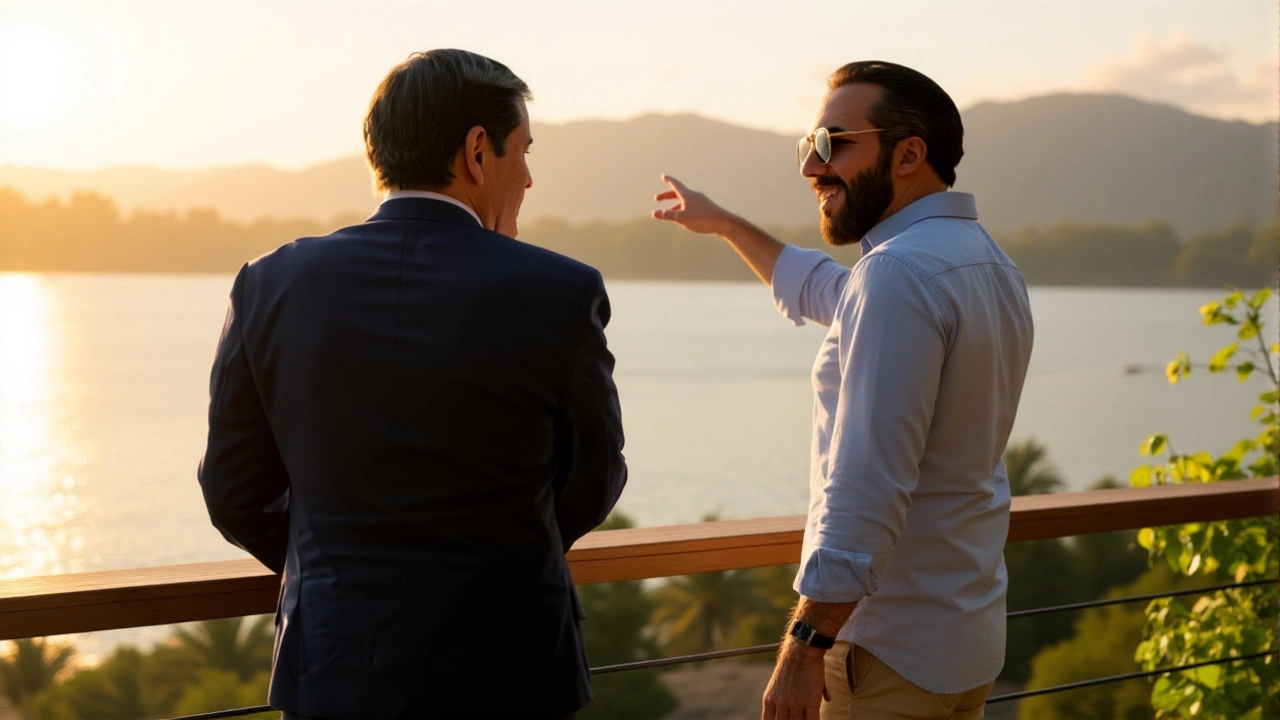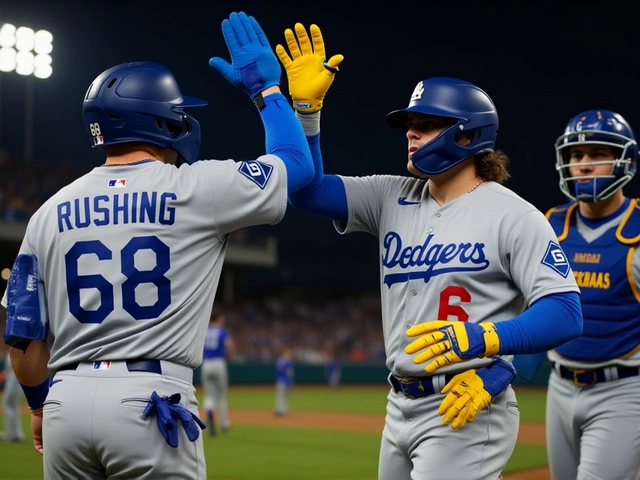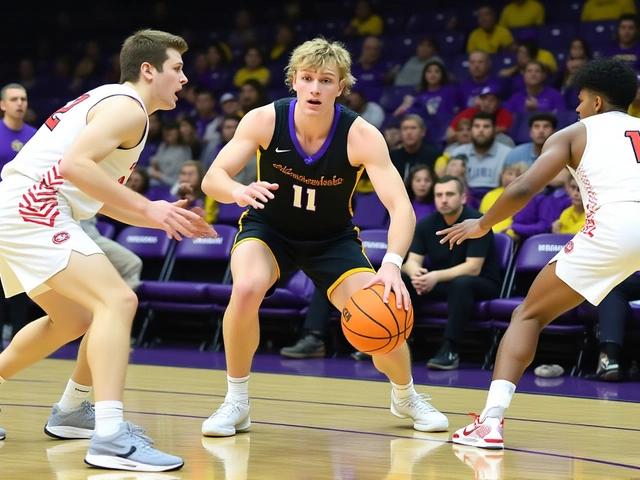When Marco Rubio landed in Mexico City on November 20, 2025, the air still smelled of smoke from the previous day’s missile strike—a U.S. military operation that had blown a Venezuelan narco-vessel out of the Caribbean Sea. It wasn’t just a show of force. It was a message: under the Trump administration, diplomacy now walks hand-in-hand with firepower. Rubio, the 72nd United States Secretary of State, didn’t mince words during his meetings with Claudia Sheinbaum, Mexico’s president, and Ramón de la Fuente, her foreign minister. "What will stop them," he said, gesturing toward the cartels, "is when you blow them up." No caveats. No diplomatic footnotes. Just raw, unvarnished threat. And it wasn’t just rhetoric. The administration had already ordered the Pentagon to prepare for military strikes against the Sinaloa Cartel and the Jalisco New Generation Cartel, now officially designated as foreign terrorist organizations.
From Missile Strikes to Visa Bans: The Dual Track of ‘Americas First’
Rubio’s November 2025 tour was his third in less than a year, each stop meticulously choreographed to send a message. In February, he’d visited El Salvador, Guatemala, Costa Rica, Panama, and the Dominican Republic—thanking Guatemala’s president for maintaining ties with Taiwan and warning others against deepening relations with China. By March, he was in Jamaica and Guyana, pressing concerns over Chinese infrastructure deals. Then came the September 4, 2025 announcement: new U.S. visa restrictions targeting Central Americans who "intentionally act on behalf of the Chinese Communist Party." It wasn’t just about trade—it was about loyalty. The policy echoed the April 2025 revocation of former Costa Rican president Oscar Arias Sánchez’s visa and the 2023 detention of a Panamanian official at a U.S. airport over his ties to China. The message was clear: align with Washington, or face consequences.El Salvador: The Unlikely Ally
Nowhere is this alignment more stark than in El Salvador. In February 2025, Rubio struck a $4.76 million deal with President Nayib Bukele to house up to 300 members of Venezuela’s Tren de Aragua cartel—criminals the U.S. considers a regional threat. The arrangement? El Salvador takes them. The U.S. pays. The optics were jarring: Rubio meeting Bukele at his lakeside compound, the Salvadoran leader in aviators and an unbuttoned shirt, while human rights groups condemned Bukele’s prisons as "dangerous and inhumane." Rubio dismissed the criticism as "anti-Bukele propaganda." For Washington, stability trumps scrutiny. And Bukele, despite being accused of dismantling democratic institutions, has become a model of what the Trump administration wants in Latin America: a strongman who delivers results.
China, Cartels, and the ‘Enemy of Humanity’
Rubio’s language has grown increasingly apocalyptic. He’s called Nicaragua’s government an "enemy of humanity"—a phrase that doesn’t just describe policy disagreement, but signals a legal and moral justification for future action. Venezuela, he insists, is the primary target. The administration links President Nicolás Maduro directly to narco-terrorist networks, a claim that, while unproven in court, serves as political cover. Meanwhile, the U.S. has quietly expanded its definition of "regional instability" to include diplomatic outreach to China. Even as Rubio condemned Beijing’s influence, he took a call with China’s Foreign Minister Wang Yi on September 10, 2025—a reminder that this isn’t about isolation. It’s about control.Bolsonaro, Cuba, and the Ideological Frontier
The administration’s ideological reach extends beyond security. On September 12, 2025, Rubio publicly vowed to respond to Brazil’s Supreme Court decision convicting former president Jair Bolsonaro of plotting a coup and sentencing him to 27 years. "This is an attack on conservative values," Rubio declared. The U.S. isn’t just opposing crime—it’s defending a political worldview. Cuba and Venezuela are painted as existential threats, not just to U.S. security, but to the region’s "freedom." And yet, Rubio insists the goal isn’t domination. "We see a prosperous region rife with opportunities," he told reporters in Quito. Trade. Migration control. Security partnerships. All framed as mutual benefits—while the military drones circle overhead.
What’s Next? The Line Between Deterrence and Invasion
The big question hanging over Quito and Mexico City isn’t whether the U.S. will act—it’s where it will strike next. The administration has already signaled its willingness to cross borders. The missile strike on the Venezuelan vessel was a test. The threat against Mexican cartels is a warning. And if Mexico resists? The joint statement says it respects sovereignty. But Rubio made it clear: "Final decisions rest with President Trump." That’s not diplomacy. It’s deterrence with teeth. And Latin American leaders are watching closely. Will they bend? Will they push back? Or will they become collateral in a new Cold War—one fought not with nukes, but with visas, prison cells, and cruise missiles?Frequently Asked Questions
How does the visa restriction policy affect ordinary Central Americans?
The policy targets individuals who are "intentionally acting on behalf of the Chinese Communist Party," but the criteria are vague, leaving many diplomats, academics, and businesspeople in legal limbo. Since September 2025, over 200 visa applications from Central America have been denied under this rule, with no public list of who qualifies as a threat. Families are being separated without warning, and consular offices report skyrocketing appeals—many of which are denied without explanation.
Why target cartels as terrorist organizations?
Designating cartels as foreign terrorist organizations gives the U.S. legal authority to conduct military strikes, freeze assets abroad, and justify cross-border operations without host nation consent. It’s a legal loophole. Previously, the U.S. could only advise or assist. Now, it can act unilaterally. The Sinaloa and Jalisco cartels are the first to be labeled this way—setting a precedent that could soon apply to others, including Colombian or Honduran groups.
What’s the connection between China and the cartels?
There’s no credible evidence linking the Chinese government to cartel operations. The administration’s narrative conflates two separate issues: Chinese infrastructure investment (like ports or telecoms) and drug trafficking. The real link? Both are seen as threats to U.S. dominance. By tying them together, the Trump administration justifies a broader campaign of economic and military pressure across Latin America under the banner of "national security."
Has Mexico officially agreed to U.S. military action on its soil?
No. Mexico’s government has repeatedly stated it opposes unilateral U.S. military operations on its territory. The November 20, 2025 joint statement emphasized "respect for sovereignty." But Rubio’s comments suggest the U.S. may proceed regardless—relying on tacit silence or delayed responses. Historically, Mexico has protested U.S. drone strikes near its border, but rarely taken retaliatory steps. That restraint may be tested if the U.S. strikes a cartel compound inside Mexican borders.
What precedent does this set for future U.S. interventions?
This marks a dangerous shift: from containment to pre-emptive strikes, from diplomacy to coercion, and from bilateral cooperation to ideological alignment as a condition of survival. If the U.S. can strike a Venezuelan vessel and threaten Mexican cartels without permission, what stops it from targeting political opponents in Colombia, Ecuador, or Bolivia? The framework is now in place. The next target might not be a cartel—but a government.




